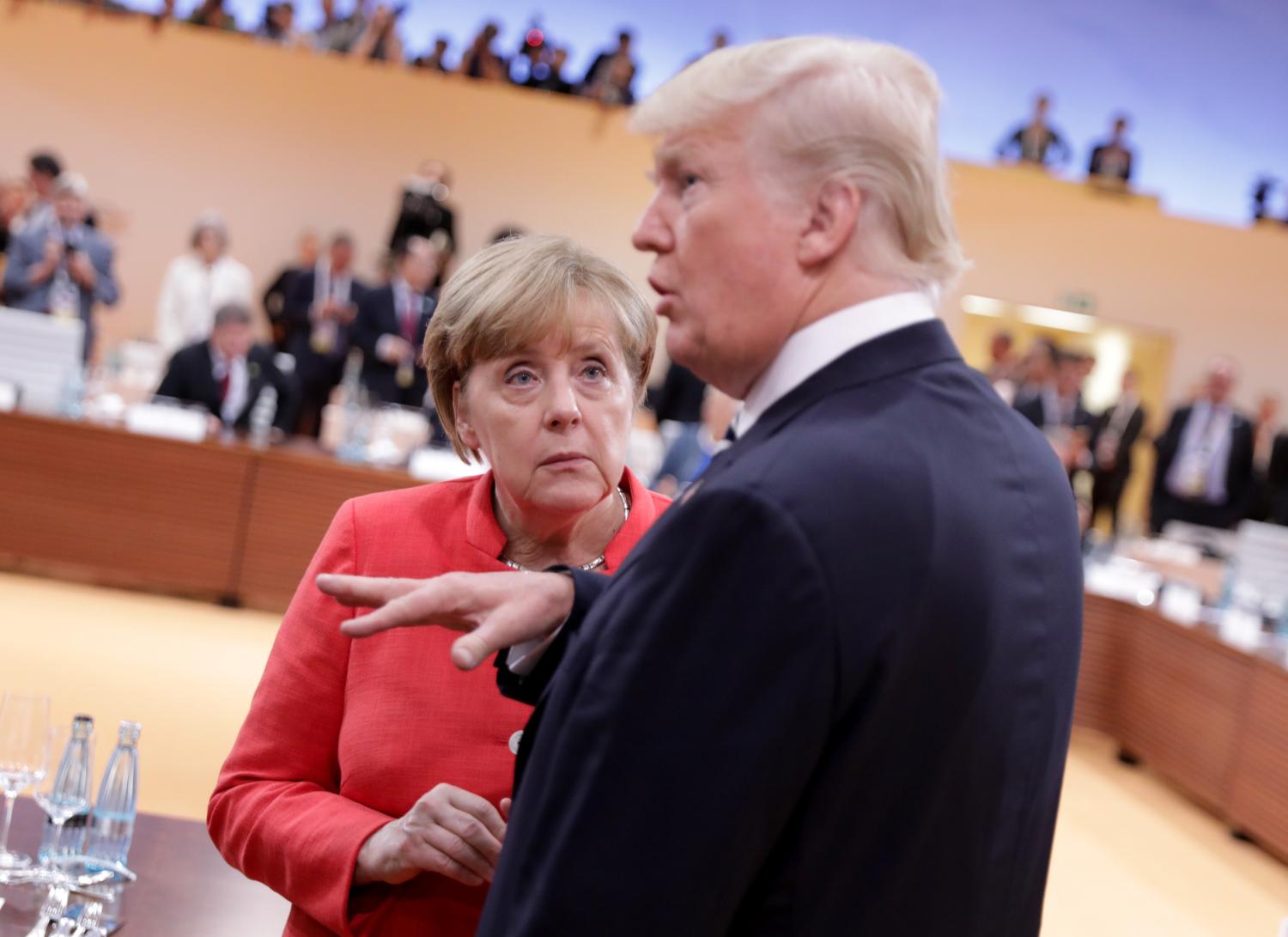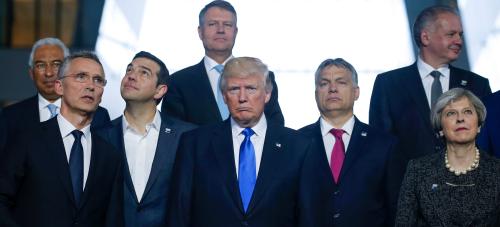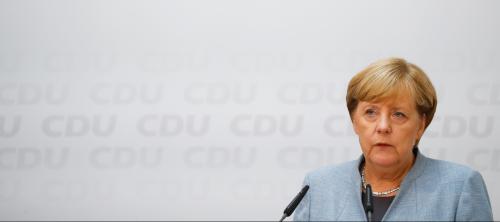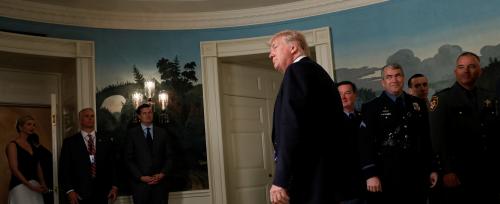While conventional wisdom in Washington and many European capitals sees U.S. foreign policy and trans-Atlantic relations as having largely “normalized” a year into the Trump administration, a new fault line in the trans-Atlantic alliance runs between defenders and adversaries of a liberal international order based on globalization and open societies, Constanze Stelzenmüller argues in the second of a series of papers for the Brookings – Robert Bosch Foundation Transatlantic Initiative (BBTI).

Year one of the Trump administration has been uniquely unnerving. Yet the trans-Atlantic security community has also been breathing a sigh of relief, because many of their worst expectations seem to have been averted: trade wars, an attack on North Korea, the end of NATO. The conventional wisdom in Washington, DC and many European capitals today is that—despite a president who continues to defy conventions—U.S.-European relations have largely normalized. As a result, most Europeans are attempting to ride out what they believe to be a temporary aberration of American politics with a mixture of hugging and hedging. There is certainly evidence for a normalization of U.S. foreign policy, not least in the president’s formal endorsement of NATO’s mutual defense clause, and the reinforcement of American contributions to reassurance and deterrence in Eastern Europe. There are also many signs that the past year has re-energized American civil society, belying determinist critics in Europe. But Trumpism needs to be recognized as a massive discontinuity.
Trump is the first postwar American president to question the liberal order as such. In its purest form, the “America First” doctrine has implications for the EU and some of its member states (especially Germany) that should be of intense concern to Europeans. Europeans should worry even more, however, about its fundamentalist critique of globalization (which it refers to as globalism) as a quasiadversarial ideology. The globalization-globalism dichotomy, unlike all previous trans-Atlantic disagreements, is a dispute about the nature of the world we live in. And it is a wedge that could drive the United States and Europe apart. America could attempt (at immense cost to itself) to decouple from the liberal world order and the global economy. But for Europe to do so would be suicidal. This flips the existing logic of the trans-Atlantic alliance on its head: it is Europe now that has the greater—and for it, existential—interest in preserving an international order that safeguards peace and globalization.







